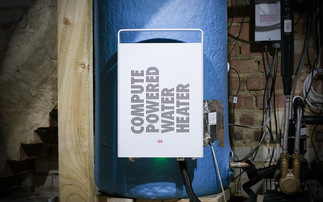Philips Lighting chief executive Eric Rondolat wants world leaders to set targets to double annual energy efficiency improvement rate by 2030
Eric Rondolat, chief executive of Philips Lighting, has called on world leaders to move faster to curb global energy use by setting more ambitious targets at the upcoming Paris climate change summit.
Speaking at the B4E Climate Summit, taking place this week in London, Rondolat said politicians need to set bold targets to boost the global energy efficiency rate from the current 1.3 per cent to three per cent per year by 2030.
Global energy demand is increasing at twice the rate of our capacity to save energy, he told delegates. "We absolutely need to save more energy than we do today and we need to do it faster. Technology is available, and it can be done in developing countries and mature countries without sacrificing our quality of life," he said.
Speaking to BusinessGreen at the event, Rondolat said the UN 21st Conference of the Parties (COP21) was a "fantastic opportunity" to boost global ambition for energy efficiency. "We need to make sure that during the summit there is a conscious decision to increase targets."
He called for a bigger focus on addressing energy consumption at a global level in addition to efforts to promote greener energy supply. "The name of the game is how we can focus much more the leaders of this planet on saving energy faster.
His comments echo those of the energy efficiency industry more broadly who consistently argue that the benefits of reducing demand are often overlooked in favour of more exciting new low carbon generation and transport technologies, such as solar panels or electric cars. The International Energy Agency (IEA) has also repeatedly underlined the importance of saving energy in meeting climate change targets, calling it the "first fuel" in the world's largest economies.
Rondolat maintained the three per cent rate was achievable using existing technology, such as LEDs, smart meters and insulation, and voiced irritation at the current speed of improvement.
"What generates frustration is when you realise what is available today, what is potentially doable today, versus what we are actually doing, he said. "If we were using what is technologically and financially viable today and we were implementing it we would be moving so much faster."
A global target of three per cent would set a "different level of ambition" across national and municipal governments around the world, according to Rondolat, but said politicians lacked the understanding of what is possible with current technology. "Moving to three per cent is something that we can do, the technologies are there. Energy is there. Willingness is there," he said.
The aspiration to reach three per cent is shared by organisations across a number of sectors. The Sustainable Energy for All initiative lists doubling the rate of energy efficiency as one of its three key targets for COP21. Meanwhile, the IEA's World Energy Outlook, released in June, highlighted improvements to energy efficiency as essential to peaking global energy-related emissions - seen as a crucial marker of success at Paris.
From Southend in Essex to Varmo in Italy, towns and cities around the world are installing LED streetlights in a bid to reduce energy bills and cut carbon emissions. Improving the energy efficiency of lighting in 500 of the world's largest cities could save up to $243.2bn in energy costs to 2030, according to a New Climate Economy report released earlier this week, while an individual city could save up to 70 per cent in energy costs by switching to LED street lighting, according to Philips.
Alongside street lighting, the firm is also promoting the use of LED and connected lighting to cut energy use in commercial and domestic settings. A global switch to LEDs would cut worldwide electricity consumption by about 10 per cent, according to Ronodolat. But it remains to be seen whether there are any plans for world leaders to embrace the benefits of energy efficiency at COP21 or whether it will remain the unglamorous cousin of other new technologies in the low carbon economy.
This article is part of BusinessGreen's Road to Paris hub, hosted in association with PwC










